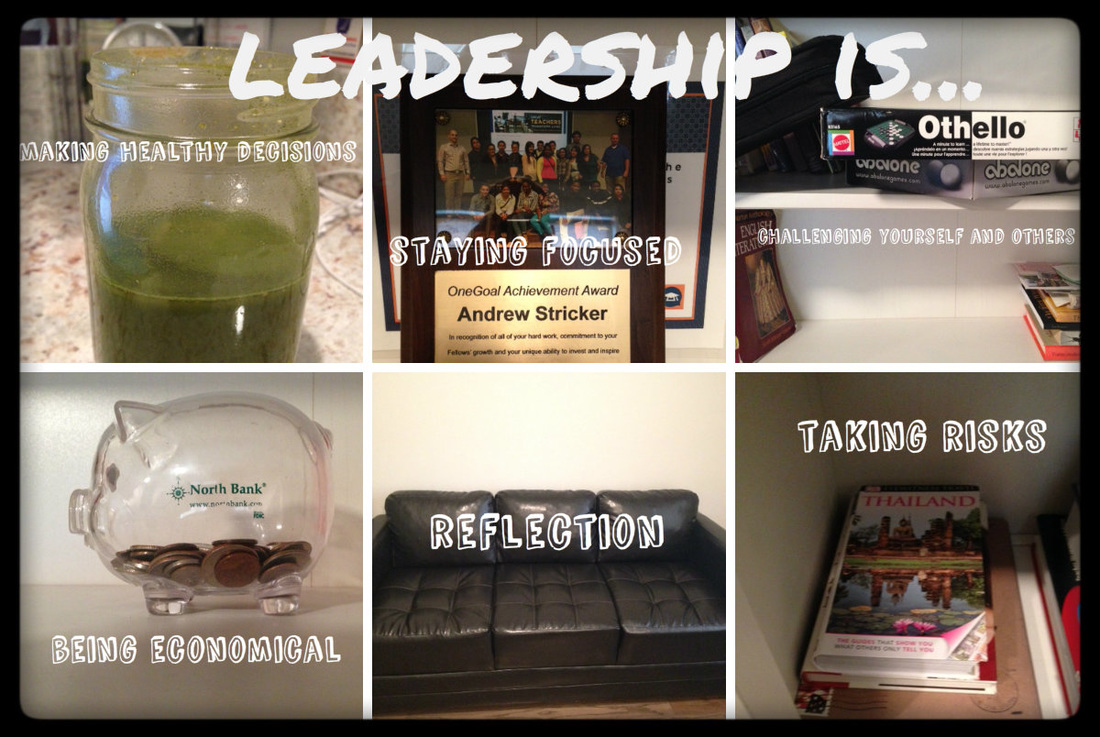Leadership means building self-efficacy in those in your charge through support, encouragement, and empathy.
- The mason jar of wheat grass, turmeric powder and flax seed – leaders understand the importance of psychological, mental, and physical health and take measures to ensure they stay as healthy as possible. I drink this healthy, yet less-than-delicious mixture because it’s good for me and helps me assist students through mathematical challenges five periods each day.
- The OneGoal Achievement Award – leaders set goals and endeavor to meet them. The three-year OneGoal experience is the most rewarding thing I’ve done in 14 years in the classroom. I was asked to lead 23 underachieving yet bright students to college and ensure that they had the support system necessary once they got there. When students faced difficult situations during their junior and senior year of high school and first year of college, it was up to me to help them by troubleshooting and encouragement.
- The Othello board game – leaders embrace competition and learn from mistakes. They challenge themselves and others. Friendly competition that builds capacity in deliberate thinking and decision making benefits you and your competitor. You learn from each other and your own mistakes. This allows you to play the game (of life or school) in a much smarter, better way.
- The piggy bank – leaders are frugal. Resources are always limited, so being economical is something strong leaders possess. It’s good practice in discipline to make the most of what we have and not be wasteful. This thriftiness, we hope, trickles down to those we lead.
- The leather couch – leaders take time for leisure and reflection. Even the leader of the free world vacations with his family and reflects on his performance. Being able to unplug and relax is necessary for successful leadership. Leaders who don’t find time to unwind suffer, I imagine, and their work and relationships with others suffers, too.
- The Thailand book – leaders take calculated risks. Going to the other side of the world to a foreign land, especially during a period of civil unrest, is a risk. The idea was to experience another culture in order to become a more intelligent, educated person. This is something that leadership requires.

